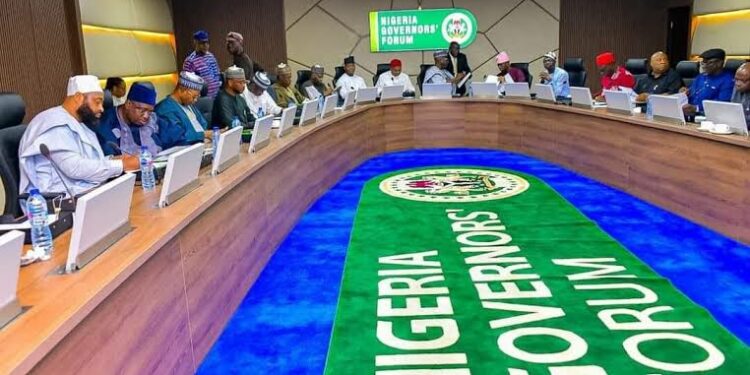As Nigeria anticipates the enactment of a new minimum wage, promised to be sent to the National Assembly by President Bola Tinubu, concerns have arisen over its potential financial strain on states. The Federal Executive Council recently deferred a decision on the tripartite committee’s recommendation, allowing for further consultations among federal and state governments, private sectors, and labour unions.
Last week, Tinubu convened with governors at the National Economic Council meeting, yet details on the minimum wage were notably absent from discussions. Similarly, the Southern Governors’ Forum emphasized state-level negotiations for the minimum wage.
This move has drawn criticism from labour unions, who perceive undue influence from the Nigeria Governors’ Forum in wage negotiations. A report from the NGF Secretariat highlighted the fiscal challenges states face, with projections suggesting that implementing a proposed N62,000 minimum wage could push many states into deficit. States like Abia, Ekiti, Gombe, Imo, Katsina, Kogi, Oyo, Plateau, Sokoto, Yobe, and Zamfara were already operating at a deficit in 2022 due to high recurrent expenditure.
The NGF report detailed the financial implications for various states. For instance, Abia, with approximately 58,631 workers, spends N5.8 billion monthly on wages alone. Bayelsa, with 48,213 employees, incurs a total recurrent expenditure exceeding N10.5 billion monthly, including pensions and debt servicing.
Amid these financial challenges, states vary greatly in revenue generation. Lagos recorded the highest revenue in 2022 at N1.24 trillion, while states like Kebbi and Taraba had significantly lower revenues despite facing similar expenditure pressures.
In response to these financial pressures, some states have been accused of delaying or failing to fully implement the current N30,000 minimum wage and its consequential adjustments. Chris Onyeka of the NLC highlighted several states allegedly flouting the Minimum Wage Act, including Abia, Delta, Adamawa, Imo, and Zamfara.
In Enugu State, however, there have been efforts to comply with wage mandates, with the government initiating payments since February 2020, albeit with variations in consequential adjustments for different sectors.
As discussions continue, stakeholders stress the need for careful fiscal management and transparent negotiations to ensure sustainable wage policies across all states amidst varying economic conditions and revenue capacities.
























